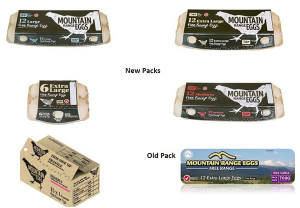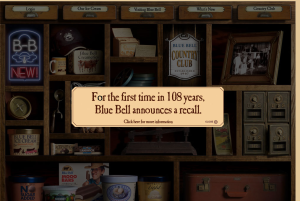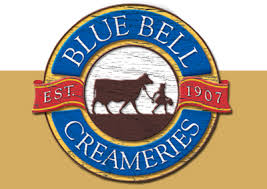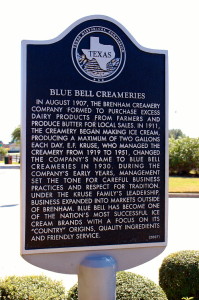Lydia Nuzum of the Sunday Gazette – Mail writes that for Amy Nordyke, it seemed like the right choice. After researching ways to improve her family’s diet, she stumbled across the idea of consuming raw milk.
 “It was very convincing — that raw milk, under certain circumstances, could be a perfectly safe food to consume for all ages,” Nordyke said. “We just jumped right in and started consuming it.”
“It was very convincing — that raw milk, under certain circumstances, could be a perfectly safe food to consume for all ages,” Nordyke said. “We just jumped right in and started consuming it.”
Nordyke, her husband and her children, who live near Fort Knox, Kentucky, had been consuming raw milk for nearly a decade when, in September 2014, Nordyke’s then 18-month-old son, Seamus, fell ill — first with bloody diarrhea, which quickly morphed into severe dehydration. Nordyke took him to a pediatrician and continued to monitor her son. When she realized Seamus was no longer urinating, she rushed him to her local hospital.
Seamus had developed hemolytic uremic syndrome, a condition caused by the premature destruction of red blood cells that clog the kidneys and cause them to stop functioning properly. The condition turned out be a complication from contracting E. coli, a bacteria commonly found in contaminated food. In Seamus’ case it came from consuming raw milk.
Seamus wasn’t the only one affected, Nordyke said, three other children had been admitted to the hospital for HUS, and Nordyke recognized the parents of one from Facebook. They were also members of the food club Nordyke procured her raw milk from.
“It was hard for me to accept at first that something that I had actively sought out for so many years could have made my child sick, but after a certain point, I just couldn’t deny it anymore,” she said.
According to the Centers for Disease Control and Prevention, 202 of the 239 hospitalizations involving tainted dairy products between 1993 and 2006 were linked to the consumption of raw milk or raw-milk cheese. More than 1,500 people were sickened by raw milk products in that time frame, according to the CDC. The CDC has also reported that unpasteurized milk is 150 times more likely to cause foodborne illness and results in 13 times more hospitalizations than illnesses involving pasteurized dairy products.
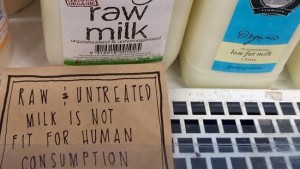 There have been intermittent cases of raw milk contaminations over the years, but large-scale issues are rare, primarily because consuming raw milk is rare in the U.S., according to Dr. Art Rubin, interim health officer for the Kanawha-Charleston Health Department.
There have been intermittent cases of raw milk contaminations over the years, but large-scale issues are rare, primarily because consuming raw milk is rare in the U.S., according to Dr. Art Rubin, interim health officer for the Kanawha-Charleston Health Department.
“That’s been the problem in the Legislature,” Rubin said. “I think part of the reason these infections don’t look statistically significant is because there isn’t as much raw milk consumption, and I think if there were more, you’d start to see more side effects.”
Nordyke’s access to raw milk was the result of a loophole in Kentucky law. While the sale of raw milk in the state is illegal, there are no laws expressly prohibiting herd-sharing, she said.
“Herd-shares in Kentucky aren’t exactly legal, but they’re not illegal, either — it’s a loophole in the law,” she said. “Raw milk sales here are illegal, but you can milk your own cow, so if you own part of a cow, it becomes OK.”
Last week, the West Virginia House of Delegates voted 81-19 to allow the consumption of non-pasteurized milk in West Virginia. The Senate passed the legislation (SB30) last month, so the bill next goes to Gov. Earl Ray Tomblin for his signature. The bill will not allow the sale of raw milk, but will permit herd-sharing — buying stock in a cow or a herd and drinking milk produced by that cow or herd.
House Republicans noted in discussion of the bill that it was a matter of personal freedom
Despite having “one of the most severe” cases of HUS the hospital had seen, Seamus was able to make a full recovery after two weeks in the hospital, though he still receives check-ups to ensure that his kidneys are functioning as they should.
 Schaffner, a professor of microbiology at Rutgers University who also sits on McDonald’s Food Safety Advisory Council said the complex processes that can trip up exotic places that make everything from scratch, for example, are missing from these eateries, which is part of how they produce food fast, adding, “Those restaurants do a pretty good job of engineering out the risk factors. I’d be more leery going to a fancy white-tablecloth place than a fast-food restaurant.”
Schaffner, a professor of microbiology at Rutgers University who also sits on McDonald’s Food Safety Advisory Council said the complex processes that can trip up exotic places that make everything from scratch, for example, are missing from these eateries, which is part of how they produce food fast, adding, “Those restaurants do a pretty good job of engineering out the risk factors. I’d be more leery going to a fancy white-tablecloth place than a fast-food restaurant.” Establishments with problem histories also are visited more often, however; the city says a single violation for a food-borne illness risk factor usually calls for a repeat inspection.
Establishments with problem histories also are visited more often, however; the city says a single violation for a food-borne illness risk factor usually calls for a repeat inspection.



